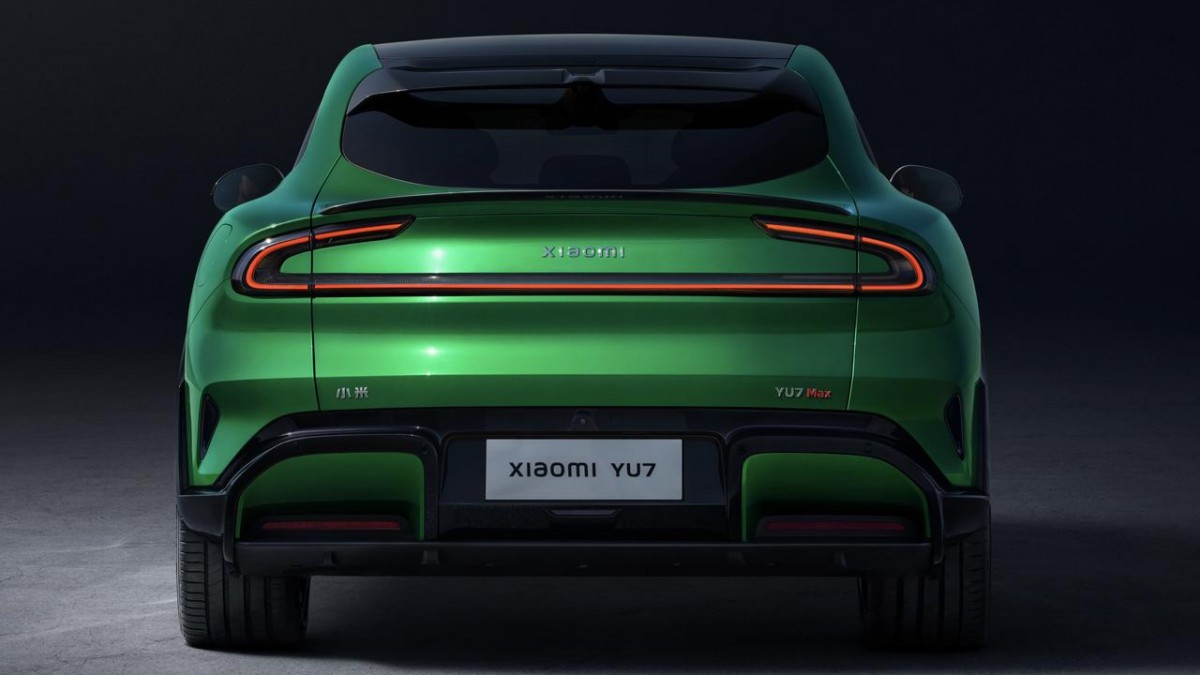Xiaomi to deliver 100,000 YU7s in 2025, taking sales away from Tesla Model Y
Xiaomi has officially unveiled the YU7's key specifications and features, announcing a full market launch in July. Industry watchers from Wang Bin's team at Deutsche Bank, anticipate that the first customer deliveries will start as early as July.
The bank projects that Xiaomi could deliver 100,000 units of the YU7 electric SUV in the full year of 2025. This is on top of an expected 280,000 units of its SU7 sedan, bringing Deutsche Bank's total forecast for Xiaomi EVs in 2025 to no less than 380,000 vehicles.

The figure is ambitious, as it even surpassed Xiaomi's own revised target of 350,000 units for 2025, which founder and CEO Lei Jun announced in March. The company had initially planned for a combined capacity of 300,000 units from its two-phase Beijing plant.
There's no doubt Xiaomi has high ambitions, but ramping up production presents challenges. The company's first electric vehicle, the SU7, which began deliveries in April 2024, currently has customers facing wait times of 40 to 50 weeks, according to Xiaomi's EV App. This clearly shows that production capacity is still a big factor.

Xiaomi's EV factory completed its first phase in 2023 and reportedly began double-shift production in June 2024. Construction of the second phase is underway and is expected to be completed by mid-June 2025, which should help with some of these production pressures and support the introduction of the new YU7.
Xiaomi's CEO Lei Jun has not been shy about his company's ambitions, openly pitting the YU7 against established players like the Tesla Model Y. During the unveiling, Jun made direct comparisons, claiming that the YU7 is "way more competitive."

One of the headline claims revolves around its 800-volt charging platform, which Xiaomi says can add 385 miles of range in just 15 minutes of charging. This is a pointed comparison to the Tesla Model Y, which, according to Jun, takes 27 minutes to charge from 10% to 80% state of charge. If these figures hold true in real-world conditions, the YU7 could offer a big advantage to owners.
The Xiaomi YU7 will be available in three trims: Standard, Pro, and Max, mirroring the options for the SU7 sedan. Looking at the entry-level Standard rear-wheel-drive (RWD) YU7, it claims an impressive 516 miles range, way more than the 368 miles offered by the comparable Tesla Model Y RWD sold in China. This extended range is largely due to the YU7's larger 96.3 kWh battery pack, compared to the Model Y's 62.2 kWh unit.
| YU7 Standard RWD | Model Y RWD | YU7 Pro AWD | Tesla Model Y LR AWD | |
|---|---|---|---|---|
| Range (CLTC) | 519 miles | 368 miles | 478 miles | 447 miles |
| Battery | 96.3 kWh | 62.5 kWh | 96.3 kWh | 78.4 kWh |
| Charging platform | 800 V | 400 V | 800 V | 400 V |
| Power output | 235 kW | 220 kW | 365 kW | 331 kW |
| 0 to 62 mph | 5.9 s | 5.9 s | 4.27 s | 4.3 s |
| Top speed | 149 mph | 125 mph | 149 mph | 125 mph |
| Curb weight | 5,104 lb | 4,235 lb | 5,346 lb | 4,392 lb |
The YU7 is a larger vehicle, measuring nearly 5 meters in length, making it 8 inches longer than its American counterpart. It also features a more spacious front trunk with a 141-l capacity. Despite its larger size and battery, the YU7 Standard RWD matches the Model Y RWD's 0 to 62 mph acceleration time of about 5.9 seconds. However, the larger YU7 is heavier by 869 lb.
When comparing the all-wheel-drive (AWD) YU7 Pro against the Tesla Model Y Long Range AWD, Xiaomi's offering again appears strong on paper in several specifications. The Model Y Long Range maintains an edge in areas like drag coefficient, a lower curb weight, and computing power.

Xiaomi also plans a YU7 Max trim with a 508 kW (approximately 681 horsepower) powertrain, which would logically compete with the Tesla Model Y Performance, a variant not currently sold in China. Tesla currently sells only the 5-seater Model Y in China, but rumors suggest a 7-seater version might appear early next year, potentially adding another dimension to the rivalry.
Xiaomi's typical production ramp-up periods might offer Tesla a window to strategize in the latter half of 2025, but the long-term outlook suggests a fiercer battle. Once Xiaomi's manufacturing plants reach full capacity and more Chinese electric SUVs enter the fray, 2026 will be a critical year for Tesla's dominance in the Chinese market. The focus now shifts to the official July launch, where we will learn more about pricing and final specifications for the YU7.





Facebook
Twitter
Instagram
RSS
Settings
Log in I forgot my password Sign up